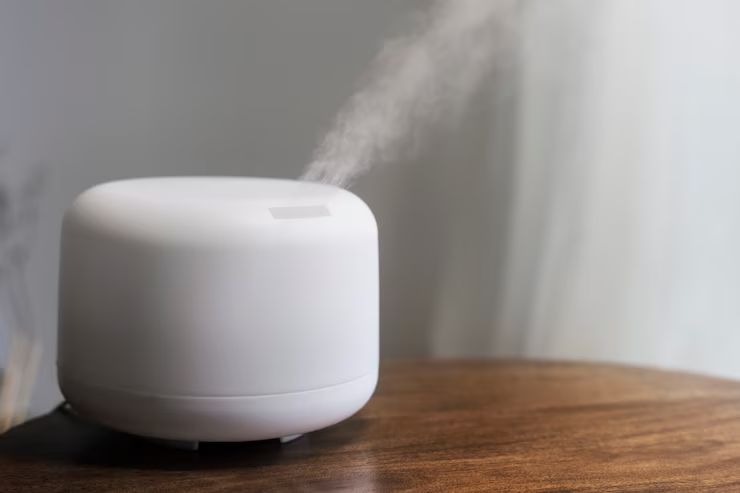Vocal health tips are essential for anyone who uses their voice regularly, from professionals to everyday conversationalists. Your voice is an incredible instrument, and taking care of it ensures clarity, longevity, and resilience. Just like athletes warm up before performance, your vocal cords also need gentle care to function at their best.
Daily hydration, avoiding excessive throat clearing, and maintaining good posture are foundational vocal health tips. Warm up your voice before extended use, and give it rest when overused. Avoid shouting or whispering too much, as both can strain your vocal cords. A balanced diet and avoiding irritants like smoking or alcohol also contribute to overall vocal wellness.
Whether you’re delivering speeches, singing on stage, or participating in long conversations, integrating consistent vocal health tips into your lifestyle will help preserve vocal strength. Think of it as vocal fitness—routine care and awareness lead to stronger, clearer, and more confident communication.

Why is Vocal Health Important ?
Your voice plays a key role in your professional, social, and emotional life. Losing it—or even having it weakened—can be a major setback. Poor vocal health can lead to:
Hoarseness
Vocal fatigue
Loss of pitch or range
Chronic throat pain
Long-term voice damage
That’s why taking care of your voice isn’t just a good idea—it’s essential.
What Affects Your Voice ?
Several factors can affect your vocal health:
Overuse or misuse of your voice
Dehydration
Poor posture and breathing
Acid reflux
Smoking or pollutants
Vocal strain from yelling or improper singing techniques
When Should You Start Caring for Your Voice ?
Vocal health tips aren’t just for singers or stage performers—everyone who speaks daily should pay attention to their voice. The truth is, vocal care should begin before issues arise. Waiting until you’re hoarse or in pain often means damage has already begun. Prevention is always better than cure.
Even mild discomfort, frequent throat clearing, or voice fatigue after a conversation are early signs that your vocal cords need attention. These subtle signals should never be ignored. Start by integrating gentle vocal health tips like staying hydrated, avoiding yelling, and warming up your voice before heavy use.
The best time to start caring for your voice is now. Prioritize your vocal wellness just like you would for your physical or mental health. With consistent vocal health tips, you can strengthen your voice, prevent long-term damage, and ensure it remains clear, strong, and expressive for years to come. Your voice deserves it.
How to Maintain Vocal Health ?
Vocal health tips play a crucial role in maintaining a strong, clear, and resilient voice. Whether you’re a teacher, singer, or someone who speaks frequently, daily habits make all the difference. Staying hydrated is key—drink plenty of water to keep your vocal cords lubricated. Warm up your voice before speaking for long periods and avoid whispering, which can strain your voice more than you think.
Being aware of your vocal limits helps prevent overuse. If your throat feels tired, rest your voice. Avoid yelling, excessive throat clearing, and speaking in noisy environments where you may unconsciously strain. Use a microphone when needed to reduce vocal effort, especially in large spaces.
Incorporating vocal health tips like using a humidifier, avoiding smoking, and getting enough sleep further supports vocal wellness. These small yet consistent actions help maintain your vocal strength and clarity, ensuring your voice remains healthy and effective for communication in the long run.
✅ Top Vocal Health Tips
Let’s dive into the best practices for protecting and improving your voice.
Stay Hydrated: Water is Your Voice’s Best Friend
One of the most essential vocal health tips is to stay hydrated throughout the day. Your vocal cords need moisture to function smoothly, and drinking water helps keep them lubricated. Dry vocal cords are more prone to irritation, strain, and damage, especially if you’re using your voice frequently.
Aim to drink at least 8–10 glasses of water daily and avoid beverages that can dehydrate you, such as caffeinated or alcoholic drinks. Sipping warm water or herbal teas can also soothe your throat and promote vocal relaxation. Keeping a water bottle with you is a simple but powerful habit.
Hydration supports vocal clarity, reduces the risk of hoarseness, and ensures your voice remains strong and flexible. Whether you’re a singer, teacher, or speaker, following this foundational vocal health tip can go a long way in maintaining a clear, confident, and long-lasting voice.

What & Why: Your vocal cords need to be lubricated to vibrate smoothly. Dehydrated cords become stiff, leading to a raspy or hoarse voice and increasing the risk of injury.
When: Drink water throughout the day, not just before you speak or sing.
How:
Aim for at least 8-10 glasses (2-3 liters) of water daily.
Avoid caffeine and alcohol—they dehydrate.
Use a humidifier, especially in dry climates or during winter.
Benefits:
Prevents vocal strain
Keeps cords flexible and healthy
Enhances voice clarity and resonance
Ingredients to Include:
Warm herbal teas (like chamomile, licorice root)
Cucumber-infused water
Honey and lemon water (anti-inflammatory and soothing)
Practice Proper Breathing: Support from the Diaphragm
One of the most powerful vocal health tips is learning to breathe correctly using your diaphragm. Diaphragmatic breathing provides better control, volume, and endurance, reducing strain on your vocal cords. Many people unknowingly rely on shallow chest breathing, which leads to tension and poor vocal performance.
To breathe from your diaphragm, inhale deeply so your abdomen expands rather than your chest. This technique allows you to project your voice effortlessly and maintain a steady airflow while speaking or singing. Regular breathing exercises can strengthen this muscle and improve vocal stamina over time.
Mastering proper breath support not only enhances your vocal power but also protects your voice from fatigue and injury. Whether you’re presenting at work or singing on stage, applying this vocal health tip ensures your voice stays strong, supported, and sustainable in the long run. It’s a foundational skill every voice user should develop.
What & Why: Breathing from your chest rather than your diaphragm puts unnecessary pressure on your vocal cords. Diaphragmatic breathing gives your voice the support it needs.
When: Use this technique before and during any vocal activity—speaking, singing, teaching, etc.
How:
Place one hand on your belly and one on your chest.
Inhale deeply through your nose; your belly should rise.
Exhale slowly through your mouth.
Benefits:
Increases vocal stamina
Reduces throat tension
Prevents vocal fatigue
Ingredients to Support This Practice:
Practice with yoga or breathing exercises (like pranayama)
Use apps that guide breath control and mindfulness
Warm Up and Cool Down Your Voice
Your voice is a delicate instrument, and just like athletes stretch before exercise, vocal warm-ups are essential before speaking or singing. Gentle humming, lip trills, or sirening can effectively prepare your vocal cords for performance or extended use. Skipping this step can lead to strain or fatigue.
Equally important is cooling down your voice after intensive use. Simple exercises like soft humming, vocal glides, or relaxed sighs help reduce tension and ease your vocal cords back into a resting state. These small habits support long-term vocal durability and comfort.
Incorporating warm-ups and cool-downs into your routine is one of the most practical vocal health tips. Whether you’re a singer, teacher, speaker, or just someone who talks a lot daily, these steps protect your voice from injury and promote longevity. Prioritize preparation and recovery to maintain a healthy, strong, and expressive voice for years to come.
What & Why: Just like athletes warm up muscles, your vocal cords need to stretch and loosen before being used intensely.
When: Warm up before singing, speaking, or teaching. Cool down after extended use.
How:
Humming
Lip trills
Sirens (gliding from low to high pitch)
Tongue twisters
Benefits:
Prepares vocal cords for activity
Prevents strain and injury
Improves vocal range and tone
Ingredients:
Use warm herbal drinks before and after
Steam inhalation for added moisture
Avoid Vocal Abuse: Speak Smart
Your vocal cords are not indestructible—yelling, whispering harshly, or speaking over loud noise can cause strain and even long-term damage. This type of misuse, often referred to as vocal abuse, is a major cause of hoarseness, fatigue, and voice loss. Being mindful of how and when you use your voice is the first step to protecting it.
One of the most effective vocal health tips is to avoid shouting and instead use amplification if you need to speak loudly. Also, avoid clearing your throat excessively, as it creates unnecessary friction on the vocal folds. Learn to rest your voice when you’re feeling hoarse or tired.
Smart vocal habits go a long way. Whether you’re a professional voice user or simply want to preserve your everyday communication, speaking smart reduces strain and keeps your voice resilient. Prevention is always better than vocal rehabilitation—treat your voice with care.
What & Why: Shouting, whispering, or clearing your throat too often can damage your vocal folds.
When: Be conscious of how and when you use your voice, especially in noisy environments or when you’re sick.
How:
Use a microphone if needed
Don’t yell or talk over loud music
Avoid throat clearing—sip water instead
Benefits:
Prevents nodules and vocal cord injuries
Maintains vocal tone and pitch
Reduces chronic hoarseness
Ingredients:
Licorice root tea for inflammation
Slippery elm lozenges to coat the throat
Eat Voice-Friendly Foods
What you eat can directly impact the strength and clarity of your voice. Certain foods support hydration, reduce inflammation, and help maintain healthy vocal tissues. Incorporating voice-friendly foods like fresh fruits, leafy greens, whole grains, and omega-3-rich sources such as flaxseeds or salmon can give your vocal cords the nourishment they need to function optimally.
One of the most underrated vocal health tips is to avoid foods that cause mucus buildup or acid reflux—two major enemies of vocal performance. Dairy, fried foods, and excessive caffeine can irritate or coat your throat, making speaking or singing more difficult. Opt for soothing herbal teas (non-caffeinated), room-temperature water, and honey when your throat feels strained.
By making simple dietary adjustments, you can protect and enhance your vocal ability. Eating mindfully isn’t just good for your body—it’s essential for long-term vocal health and consistent voice performance. Your voice will thank you!

What & Why: Your diet can support or sabotage your voice. Foods that soothe and hydrate the vocal cords are essential.
When: Especially before performances or heavy speaking days.
How: Eat foods that reduce inflammation, hydrate, and avoid mucus build-up.
Best Foods (Ingredients):
Honey – natural humectant and anti-inflammatory
Ginger – reduces inflammation and soothes the throat
Apples – natural mouth cleanser
Warm broths and soups
Leafy greens and whole grains for overall health
Foods to Avoid:
Dairy (can cause mucus)
Spicy and acidic foods (can trigger reflux)
Fried or overly processed foods
Benefits:
Keeps throat clear and moist
Supports overall vocal stamina
Reduces irritation and inflammation
Rest Your Voice: Silence is Golden
our voice, like any other muscle, needs time to recover. Constant talking, singing, or yelling can strain your vocal cords and lead to fatigue or even long-term damage. One of the most important vocal health tips is to intentionally rest your voice—especially after prolonged use or during times of hoarseness.
Practicing vocal rest doesn’t mean total silence all day—it simply means reducing unnecessary speaking and giving your voice a break when possible. Whispering might seem like a quiet alternative, but it actually puts more strain on your vocal cords. Instead, use short periods of complete silence to allow healing.
Scheduling regular voice rest is especially crucial for people who rely on their voice professionally. Just like athletes schedule recovery days, your voice needs downtime too. Protecting your vocal cords now can ensure strength, clarity, and longevity in your voice for years to come. Prioritize rest—it’s powerful and healing.
What & Why: Your vocal cords are muscles—they need rest to recover and repair after heavy use.
When: Take breaks during the day, and complete voice rest if you’re hoarse or recovering from illness.
How:
Voice naps: 10–15 minutes of silence every 2–3 hours
Complete vocal rest after overuse
Avoid whispering—it’s more stressful than speaking!
Benefits:
Prevents permanent damage
Allows healing of minor injuries
Increases long-term vocal endurance
Ingredients to Support Rest:
Chamomile tea for calming and reducing inflammation
Steam therapy to support passive healing
Steam and Humidify Regularly
Dry air is one of the most common enemies of a healthy voice. Whether caused by seasonal weather, indoor heating, or air conditioning, dryness can irritate and dehydrate your vocal cords. One of the most effective vocal health tips is to regularly use steam or a humidifier to keep your vocal tract moist and comfortable.
Steaming your voice by inhaling warm, moist air helps soothe irritation and reduce inflammation. You can use a facial steamer or simply breathe in steam from a bowl of hot water with a towel over your head. Humidifiers, especially when used overnight, add moisture to the air and help maintain hydration while you sleep.
Regular steaming and humidifying are especially important if you talk or sing frequently, suffer from allergies, or live in a dry climate. Keeping your throat moist is a simple yet powerful habit that protects your vocal strength and clarity.

What & Why: Dry air dries out your vocal cords. Steam hydrates from the outside in and keeps tissues supple.
When: Use daily in dry seasons or when voice feels strained.
How:
Inhale steam from hot water (with a towel over your head)
Use a room humidifier
Try portable steamers designed for vocalists
Benefits:
Instant hydration for the throat and cords
Reduces irritation
Soothes hoarseness
Ingredients to Add to Steam:
Eucalyptus oil (antibacterial)
Chamomile flowers
Mint or thyme leaves
Avoid Harmful Substances
When it comes to preserving your voice, what you avoid is just as important as what you do. One of the most essential vocal health tips is to steer clear of substances that can irritate or damage your vocal cords. Smoking, alcohol, and excessive caffeine are top offenders — they dry out and inflame the vocal tract, reducing flexibility and strength.
Smoking introduces harmful chemicals directly to your throat, leading to long-term damage, hoarseness, and even vocal nodules or cancer. Alcohol and caffeine act as diuretics, depleting hydration — a vital component for vocal performance. Recreational drugs, too, can have negative effects on your vocal and overall respiratory health.
Avoiding these substances not only protects your voice but also benefits your entire body. If you’re serious about maintaining a clear, strong, and long-lasting voice, staying away from irritants is a critical and often overlooked part of a smart vocal care routine.
What & Why: Smoking, alcohol, and even some medications can irritate or dry your vocal cords.
When: All the time. Avoid exposure as much as possible.
How: Quit smoking (tobacco and vaping)
Limit alcohol and caffeine intake
Monitor medications with your doctor
Stay away from polluted or dusty environments
Benefits:
Protects the delicate lining of vocal cords
Reduces inflammation
Prevents long-term damage and diseases like laryngitis or cancer
Ingredients to Counteract Damage (If Exposed):
Turmeric milk – anti-inflammatory
Holy basil (tulsi) tea
Fresh lemon and ginger water
Conclusion

Your voice is one of your most valuable tools—whether you’re giving a presentation, chatting with loved ones, or simply expressing yourself. Vocal care isn’t just for singers or speakers; it’s for everyone. By incorporating small but meaningful changes into your routine, you can protect your voice from strain and fatigue. That’s where these simple vocal health tips come in.
From staying hydrated and avoiding irritants to practicing diaphragmatic breathing and warming up your voice, each step plays a vital role in maintaining vocal strength and flexibility. Just a few mindful minutes a day can lead to long-term benefits for your voice and overall health.
Make these vocal health tips a daily habit—not just something you do when discomfort arises. With consistency and care, you’ll preserve your voice’s clarity, prevent vocal damage, and continue to communicate confidently and comfortably throughout your life. Your voice deserves that attention.
FAQs
Q1. Why are vocal health tips important for non-singers ?
Vocal health tips aren’t just for performers—teachers, speakers, call center workers, and everyday individuals rely on their voice daily. These tips help prevent strain and promote vocal longevity.
Q2. How much water should I drink to support my voice ?
Hydration is key in vocal health tips. Aim for at least 8 glasses of water daily to keep your vocal cords lubricated and functioning smoothly.
Q3. Can vocal warm-ups really make a difference ?
Absolutely. Vocal health tips like gentle warm-ups and cool-downs help prepare your vocal cords for use and prevent strain, especially if you talk or sing often.
Q4. What foods should I avoid for better vocal health ?
Vocal health tips recommend avoiding spicy foods, caffeine, and dairy before speaking or singing, as they can irritate or dry out the throat.
Q5. How does rest impact vocal health ?
One of the top vocal health tips is to rest your voice. Silence allows overworked vocal cords to recover and prevents long-term damage.


